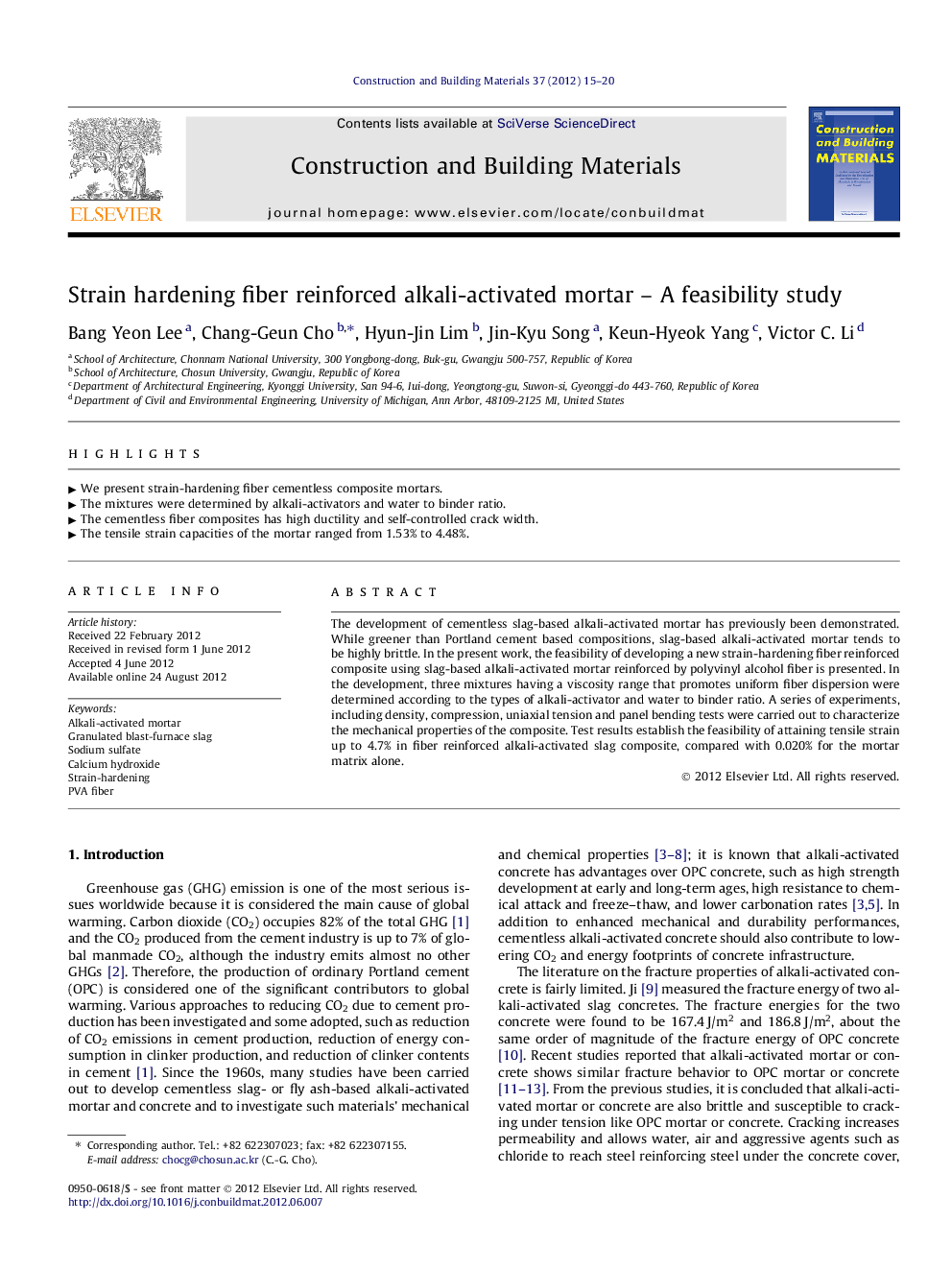| Article ID | Journal | Published Year | Pages | File Type |
|---|---|---|---|---|
| 258692 | Construction and Building Materials | 2012 | 6 Pages |
The development of cementless slag-based alkali-activated mortar has previously been demonstrated. While greener than Portland cement based compositions, slag-based alkali-activated mortar tends to be highly brittle. In the present work, the feasibility of developing a new strain-hardening fiber reinforced composite using slag-based alkali-activated mortar reinforced by polyvinyl alcohol fiber is presented. In the development, three mixtures having a viscosity range that promotes uniform fiber dispersion were determined according to the types of alkali-activator and water to binder ratio. A series of experiments, including density, compression, uniaxial tension and panel bending tests were carried out to characterize the mechanical properties of the composite. Test results establish the feasibility of attaining tensile strain up to 4.7% in fiber reinforced alkali-activated slag composite, compared with 0.020% for the mortar matrix alone.
► We present strain-hardening fiber cementless composite mortars. ► The mixtures were determined by alkali-activators and water to binder ratio. ► The cementless fiber composites has high ductility and self-controlled crack width. ► The tensile strain capacities of the mortar ranged from 1.53% to 4.48%.
